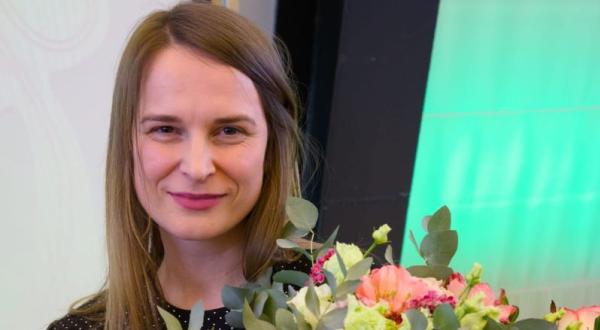Professor Sprūds: cross-cultural cooperation provides an intellectual contribution
Prof. Andris Sprūds, Dean of the Faculty of European Studies (FES), joined the RSU academic staff from the outset – in 1998. As the professor himself admits, back then right after graduating with a Master's degree, it was a professional challenge that he couldn't allow to pass by. In the 20th anniversary year of social sciences programmes, A. Sprūds shares his time at RSU, his first year as a dean, and the vision for the development of the faculty.
How did your journey at RSU begin?
My work at the Faculty of European Studies started as a pleasant professional challenge that I've never regretted over these 20 years. The time has passed in a single breath, but I still remember the first class and the first student papers that I reviewed as well. I had just finished Master's studies in Budapest and was about to leave for studies at Oxford. At that same moment I got an offer to join a new, dynamic team at Rīga Stradiņš University (it was called the Medical Academy of Latvia back then). It was an offer I couldn't refuse. I was at the faculty all these years, I watched it evolve and I evolved along with it, and I have a great sense of satisfaction about that. I think it's typical for the FES and RSU in general – that the teaching staff can grow as professionals in their area.
Now, as dean of the faculty, the feelings I have are both interesting and intriguing. This position allows me to implement ideas to for development of the faculty that came about during my years of work here. But it also requires on to study and learn many new things. It's another professional challenge for me.
When it was decided to establish the RSU social study programmes, there were other universities that offered them as well. What, in your opinion, allowed the FES to strengthen its position and to successfully compete for 20 years now?
We should thank the founder of the faculty, Ms Ostrovska, for that, and Professor Jānis Vētra, who was rector of the university back then. I think that the most important element at the moment of founding was a clear and productive vision regarding the type of studies we want to offer and develop here. It was a vision about a new type of studies that are based on the module system, and about willing, able and independent students, about new lecturers who have graduated from universities abroad. It is also noteworthy that outstanding individuals have led the faculty over these years: Ilze Ostrovska, who I mentioned before, Professor Andrejs Vilks and Professor Ilga Kreituse, who have laid a strong foundation for bringing this vision to life.
Yes, the module system is not easy for students, but those who withstand this pace greatly appreciate the knowledge and competencies that they have acquired at RSU. Our student must be disciplined from the first day of their studies until the last. Intensive studies that are based on independent work help the graduates to integrate in the dynamic professional environment more easily. The broad spectrum and geography of our former students' employment is the best proof of the quality the faculty has to offer.
How have the students changed during these years?
Naturally, students change, just as our society does. At the end of the 90's, young people were more willing to invest themselves, to focus on something. Now, life is much faster, so teachers must adapt as well. We can't work with just the classical methods today. The study process becomes more interactive and brings in new technologies. The greatest challenge today is to find an optimal balance between independent work (reading and writing) and new forms of studies.
Despite the dynamic environment, there are things that have stayed the same in the FES study process. They are the competencies that we develop in the students: the ability to analyse, critical and creative thinking, ability to express and substantiate one’s personal opinion. I must say that we not only teach these principles at the faculty, but also work according to them. Quite often, we have an opinion that doesn't match that of others, but we discuss our arguments and accept this difference of opinion. We also managed to retain the small group approach and students working independently. It's important, because the ability to focus, analyse and discuss things qualitatively will always be relevant.
What is your vision for the development of the Faculty of European Studies?
One of the aspects that I want to develop as a dean is strengthening the international dimension. It includes attraction of foreign teachers, launching study programmes in English, as well as research projects in collaboration with foreign universities. I am sure that cross-cultural collaboration improves the faculty and the university intellectually. The faculty should also develop research, because it's important for the academic development of the teachers. However, it's challenging for us, because research work requires silence and time that a teacher can have only by thoroughly planning his schedule. Something that I've already started working on is strengthening the relationship of the faculty with management and other structural units at RSU. We all belong to the same university and we can work efficiently only as a team. There's a great potential in intensive collaboration for the development of both the faculty and RSU.
Related news
 I found a graffiti teacher for a tagger, not a re-educator. The unique social work of RSU Master’s Student of the YearFor Students, Recognition, For RSU Employees, Interviews, Traditional Events
I found a graffiti teacher for a tagger, not a re-educator. The unique social work of RSU Master’s Student of the YearFor Students, Recognition, For RSU Employees, Interviews, Traditional Events
















